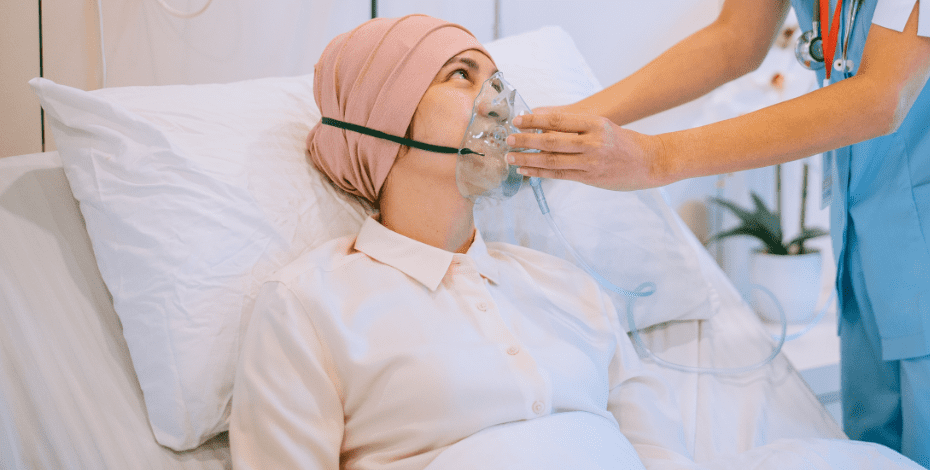
Lung cancer toolkit for physios

PAT COSH GRANT Catherine Granger talks about her proposed lung cancer education toolkit for physiotherapists.
Lung cancer is the fifth most common cancer in Australia, with an estimated 14,800 Australians diagnosed with the disease in 2023.
Surgery is typically the first treatment option for early and localised cancer but patients can be left with significant fatigue, breathlessness and pain; reduced functional capacity and muscle strength; and poor health-related quality of life.
‘We know that patients with lung cancer can have good outcomes if they are offered an exercise program to help reduce their symptoms and fatigue and improve their quality of life and fitness,’ says University of Melbourne researcher and physiotherapist Professor Catherine Granger FACP.
‘There’s a strong need for this population to receive physiotherapy but recognition of that has only emerged over the past 10 to 15 years—it’s not an area in which physios would have done a lot of work 30 years ago.
‘However, the evidence has changed quite quickly and we now know that this is a population that is very vulnerable, needing physiotherapy and exercise support to get the best outcome.’
Catherine was recently awarded a 2023 Pat Cosh Trust Annual Grant to develop Breathwise, a lung cancer educational toolkit for physiotherapists, along with her colleagues including Associate Professor Selina Parry FACP and early career research fellow Maddi Cavallaro from The University of Melbourne.
With the new national lung cancer screening program aimed at early identification of the disease scheduled to be introduced in 2025, she says there is an urgent need to improve knowledge, skills and expertise in physiotherapists working with lung cancer patients.
Catherine notes that while physiotherapists are introduced to physiotherapy care for people with lung cancer during their training, it is quite a specialised and complex area.
The toolkit will cover pre- and post-surgical physiotherapy intervention as well as community-based physiotherapy for surgical lung cancer patients.

Professor Catherine Granger has received a Pat Cosh Trust grant to develop a lung cancer education toolkit.
The toolkit will be designed by a team of end users using experience-based co-design to brainstorm and identify learning outcomes, content and functionality.
An initial round of workshops will be used to determine what content should go into the toolkit, how it might look and work, and how users will interact with it.
Once a prototype has been designed, further workshops will be held to refine the design.
In the second phase, a smaller group of users will take part in a pilot evaluation using ‘think aloud’ methodology—individual users will work their way through the toolkit, providing verbal feedback on the interface, format, features and content as they use it.
After final adjustments to the toolkit, it will be widely implemented and further evaluated by a broader user group.
Catherine and her colleagues hope to have the finished toolkit ready for implementation by the end of 2025.
Catherine says the toolkit will be of use to the wider physiotherapy community, not just those working as cardiorespiratory physiotherapists in hospitals where thoracic surgery is performed.
‘The patients that we’re seeing with lung cancer can be found in many settings.
‘For example, we hope the toolkit will be helpful for physios working in private practice, and when someone comes through the door with lung cancer the physio can jump online and go to the toolkit and quickly feel more confident about working with that individual to get the best outcomes for them,’ Catherine says.
‘We want to reach physios broadly—in the community, in regional Australia—well beyond just staff in the metropolitan hospitals that are doing the thoracic surgery.’
Ultimately, the team would like to expand the end user group for the toolkit to include other healthcare professionals—such as lung cancer nurses, respiratory specialists and oncologists—along with multidisciplinary team members such as exercise physiologists, allied health assistants and GPs.
© Copyright 2024 by Australian Physiotherapy Association. All rights reserved.





